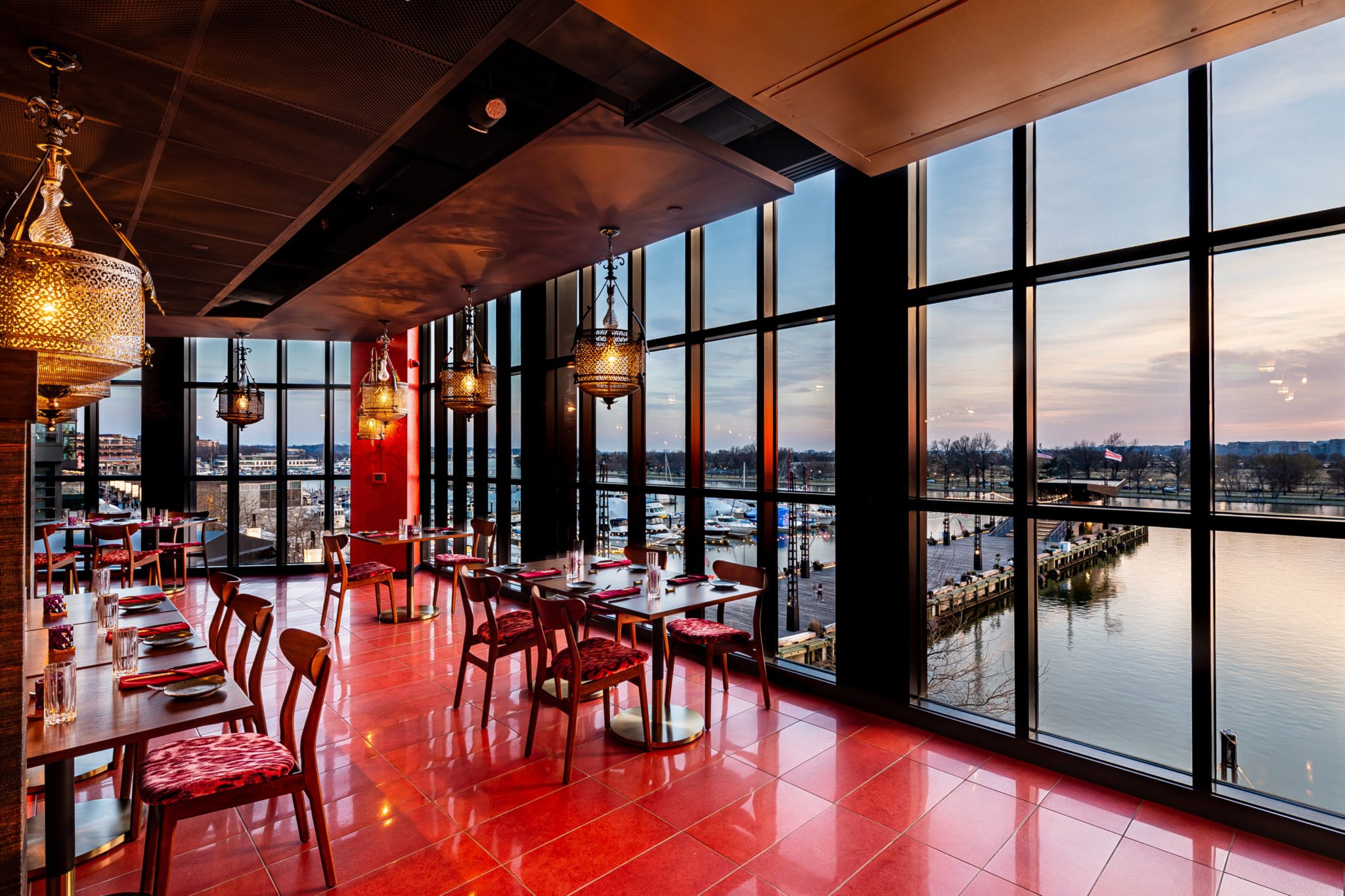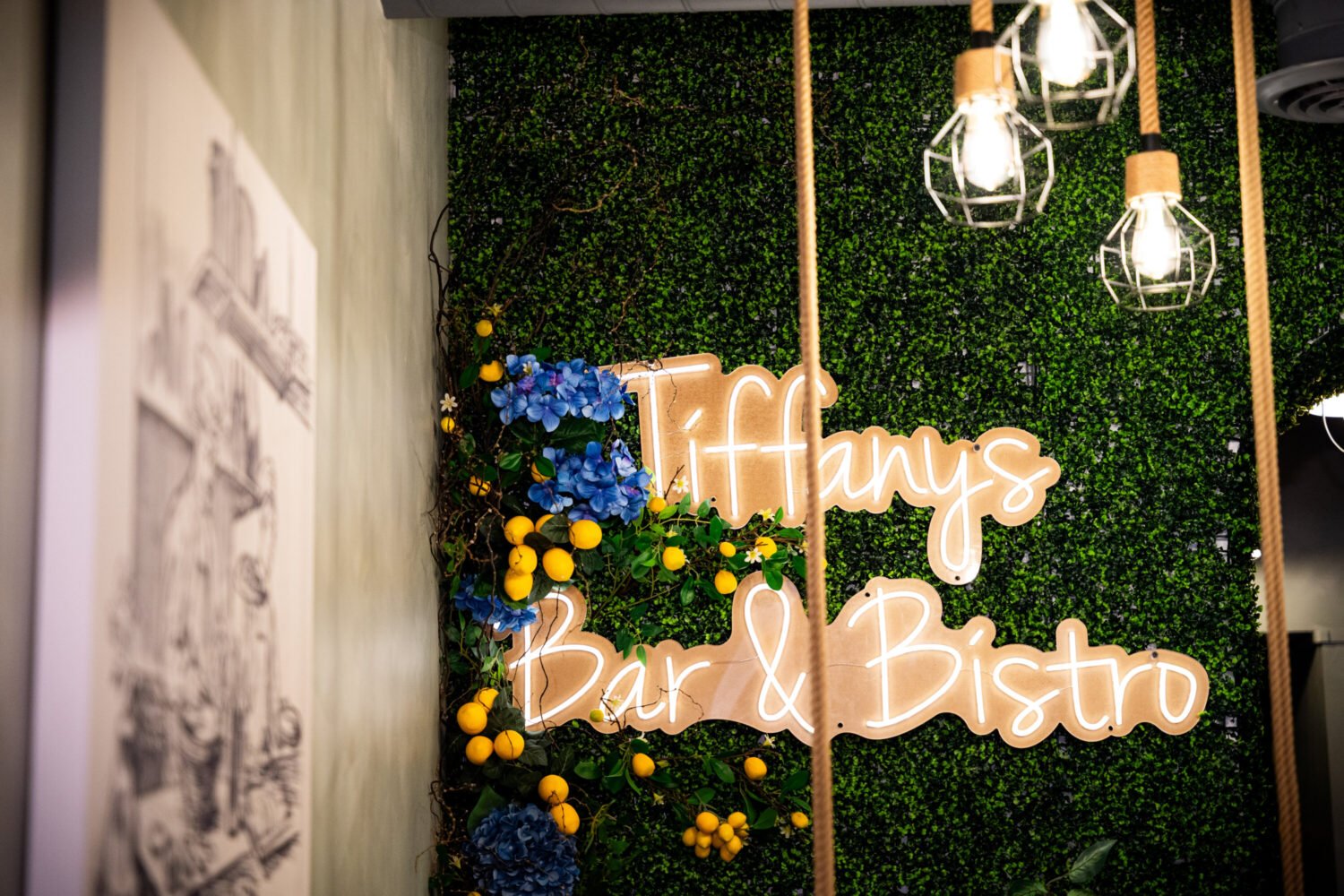About Restaurant Openings Around DC
A guide to the newest places to eat and drink.
A luxe new Japanese restaurant at the Wharf is the scene for one in a series of lawsuits alleging financial mismanagement and secret scheming between its original owners. In May of 2019, Social Restaurant Group owners Naeem Mohd and Rajiv Chadha, who are also behind La Vie and Provision No. 14, accused their estranged business partner Mike Bramson of trying to steal away their Michelin-starred sushi chef, among other allegations. Nearly two years—and a pandemic—later, the lawsuit is still ongoing with a pretrial conference set for May. Meanwhile, the long-delayed restaurant—now called NaRa-Ya—finally opened last week with “neo-traditional” Japanese tasting menus from a new culinary team.
Sushi Taro chef Nobu Yamazaki was initially tapped to oversee the menu of what was then going to be called Tabu. But he suddenly split in the spring of 2019, around the same time that Bramson was selling back his stake in the restaurant amid a falling out with his partners. Mohd and Chadha allege Bramson secretly plotted to poach Yamazaki to open their own competing sushi restaurant. (The two are partners in a fast-casual sushi and dumpling stall in Ballston’s Quarter Market, but nothing currently at the Wharf.) The lawsuit claims Bramson and Yamazaki “purposefully and intentionally misled” Mohd into believing Yamazaki was still part of Tabu, and that Mohd ultimately learned of the chef’s departure from a City Paper article. The split was allegedly a huge blow to the business that caused “significant damages.”
Meanwhile, a lawyer representing both Bramson and Yamazaki previously told Washingtonian that there was no conspiracy. He says that Yamazaki left because he felt Mohd was a “bully” and was concerned that the restaurant was being financially mismanaged after learning the restaurant’s landlord had issued a default notice. Mohd’s lawyer denied the bullying accusations and blamed the default notice on Bramson’s alleged mismanagement. There’s also an ongoing dispute about Yamazaki selling his shares in the restaurant.
After the big split, Mohd and Chadha re-conceptualized the business and changed the name from Tabu to NaRa-Ya, which is a reference to the ancient capital of Japan as well as the first letters of their names (Naeem and Rajiv). They also turned to Kaz Sushi Bistro chef/owner Kaz Okochi as their new culinary director. They’ve since brought in executive chef Lucas Irwin, whose career spans from Maui to Vail to Nantucket. He comes to DC from LoLa 41 in Palm Beach where he oversaw a menu that ranged from sushi to burgers.
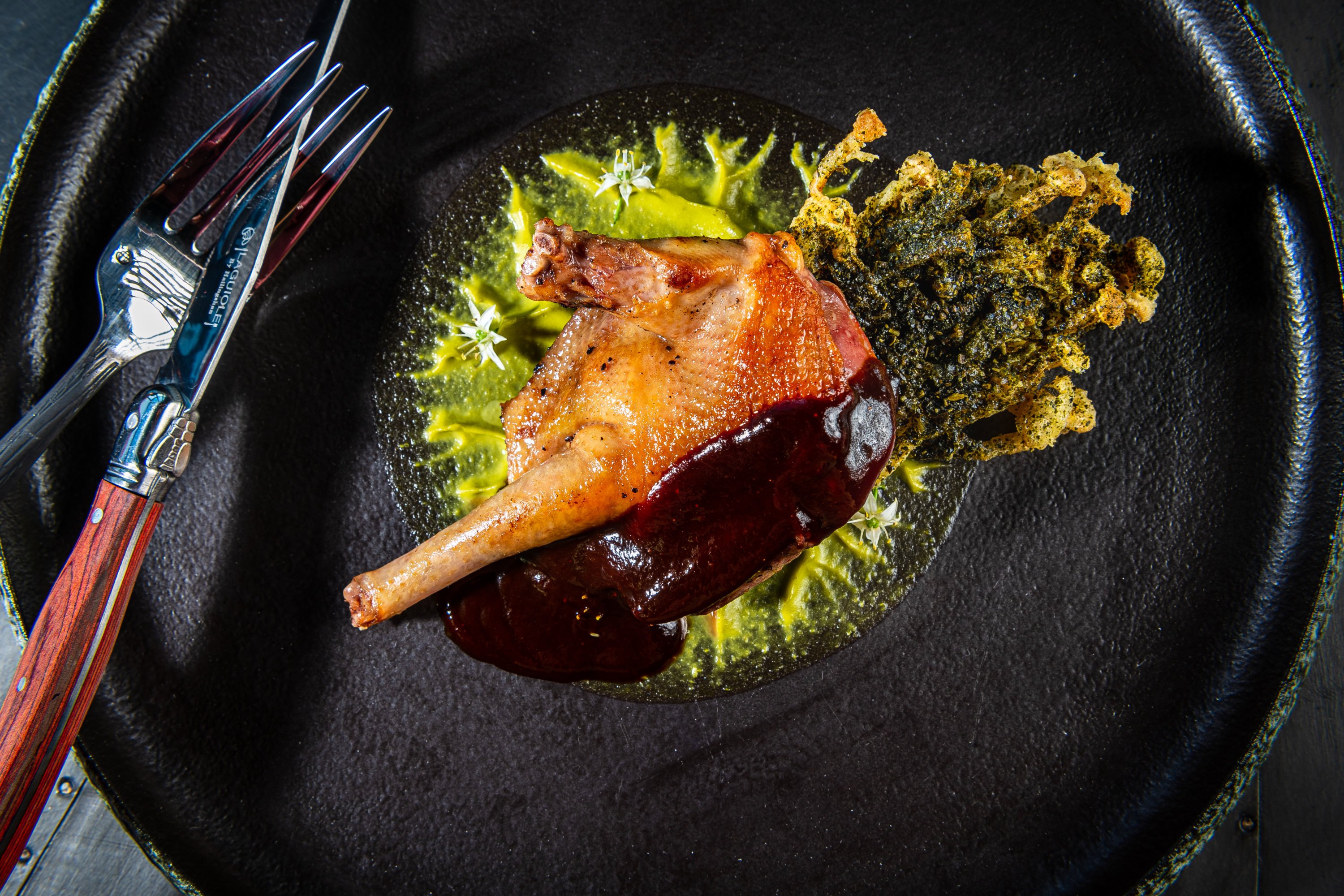
While the pandemic has turned plenty of high-end restaurants more casual, NaRa-Ya is going straight for the luxe with no takeout or outdoor dining. The restaurant centers around tasting menus—one with meat and fish ($89) and the other vegan ($75). The former offers dishes such as kampachi tiradito with kiwi-cherry blossom sauce and pan-seared squab with a shishito-miso puree and crispy enoki mushrooms. The tasting also incorporates a selection of sushi, including some less-traditional rolls stuffed with Alaskan king crab and purple sweet potato that are topped with wagyu, black garlic aioli, and crispy shallots. For spring, the sushi rice is infused with cherry blossom tea, which Irwin says gives it a floral aroma.
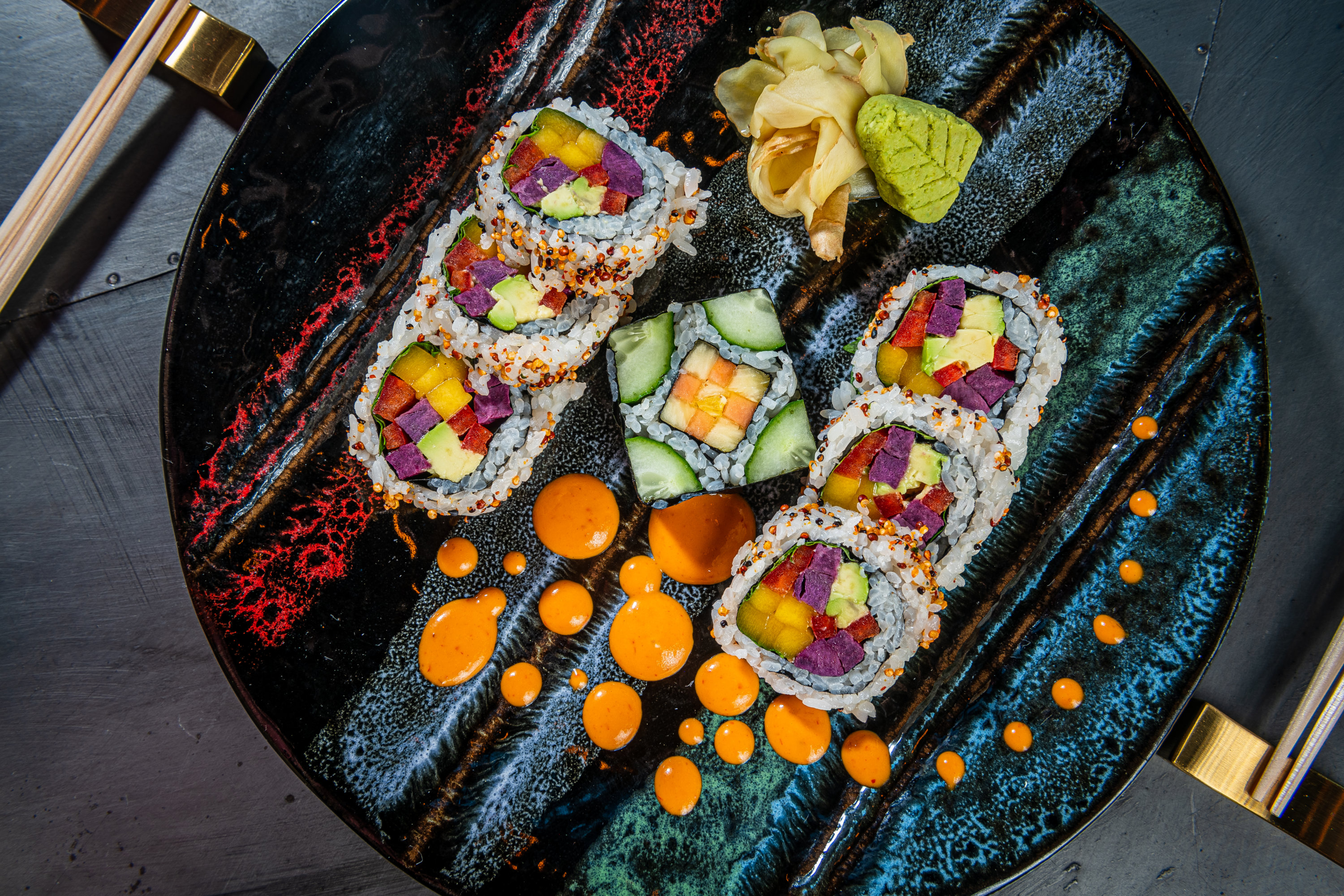
The vegan option features green tea soba noodles with a kombu dashi broth, tofu with a lemongrass-miso glaze, and a mosaic-style sushi roll with seasonal vegetables.
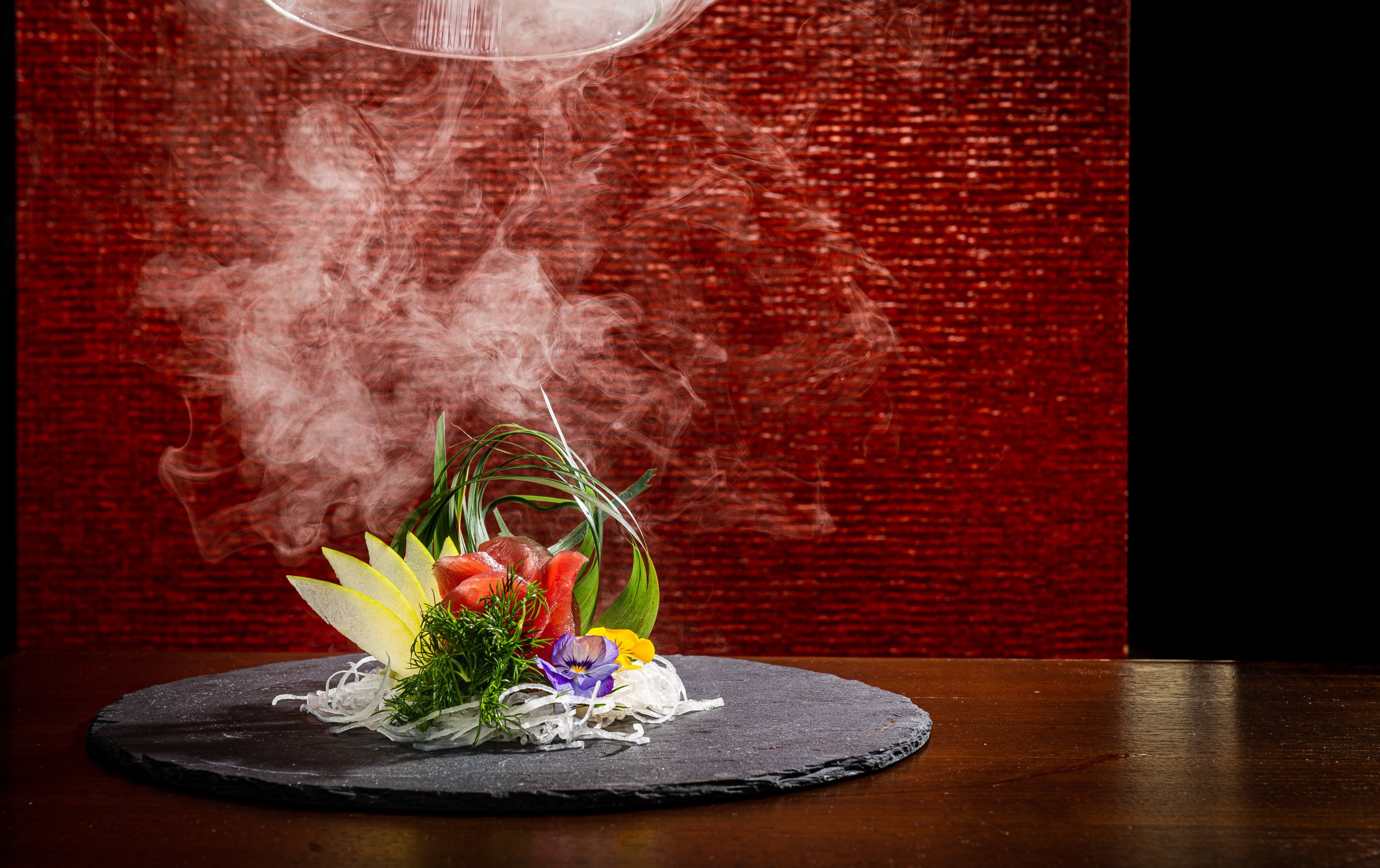
The menus come with several luxury upgrade options such as Ossetra caviar, black truffle, and foie gras “snow.” Other add-ons include marinated zuke tuna that’s shaped like a rose and presented tableside under a cherry wood smoke-filled cloche. “It’s kind of like a take on Beauty and the Beast almost,” Irwin says. Even more extravagant: three ounces of Toki whisky-glazed Japanese A5 wagyu with kabocha-orange puree and a soy-cured jidori egg yolk. Irwin describes Japanese jidori chickens as the “wagyu of chickens,” which produce deep-orange egg yolks rich in flavor.
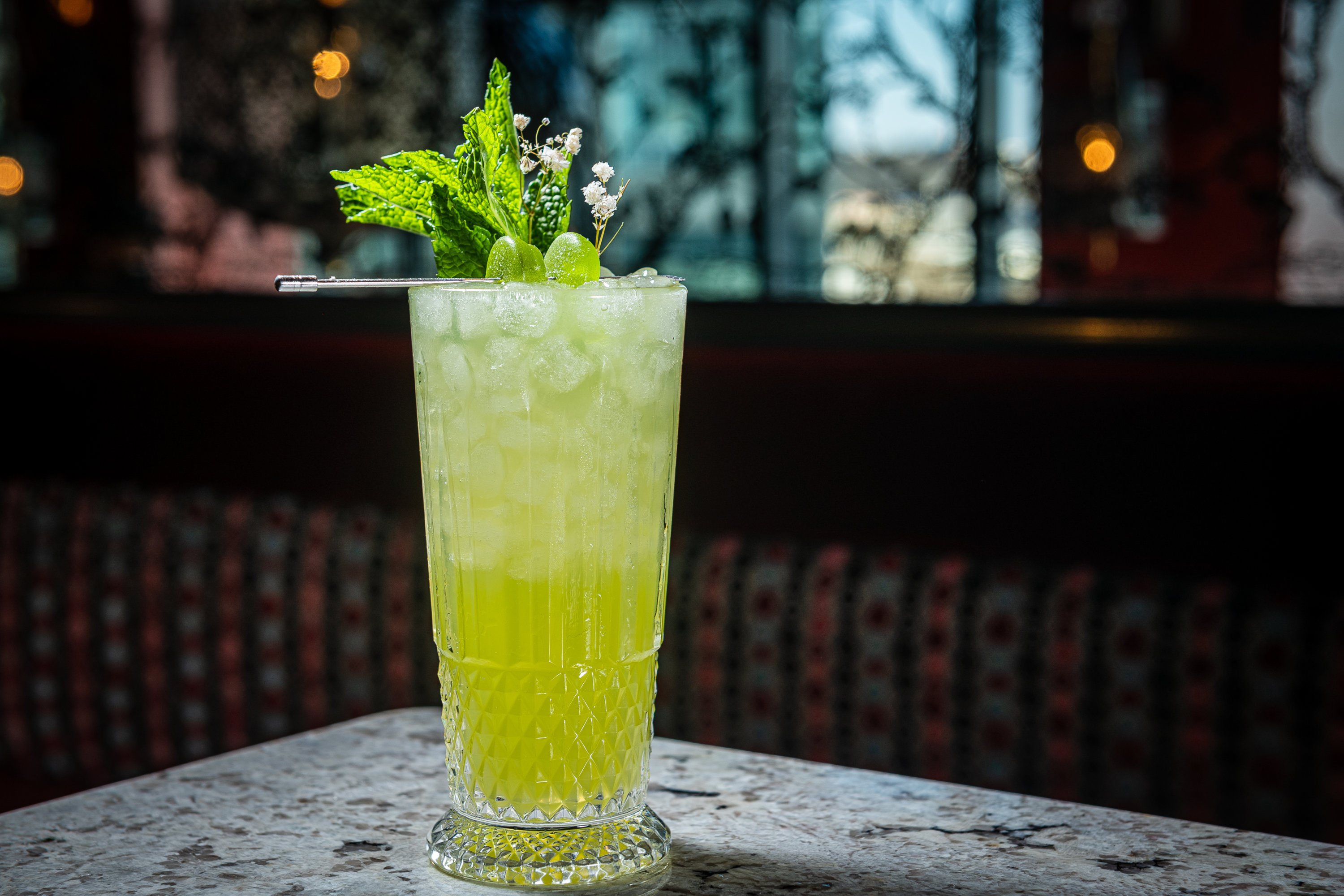
The food is accompanied by a large sake selection—available by the glass and bottle—and cocktails incorporate ingredients like yuzu, matcha, and Japanese spirits. An old-fashioned is infused with toasted brown rice, while another whisky drink is fat-washed with wagyu. There’s also a selection of Toki highballs, including one that mixes in Yamazaki 12-year for $36.
NaRa-Ya. 88 District Square, SW, 3rd floor. 202-301-8145.

